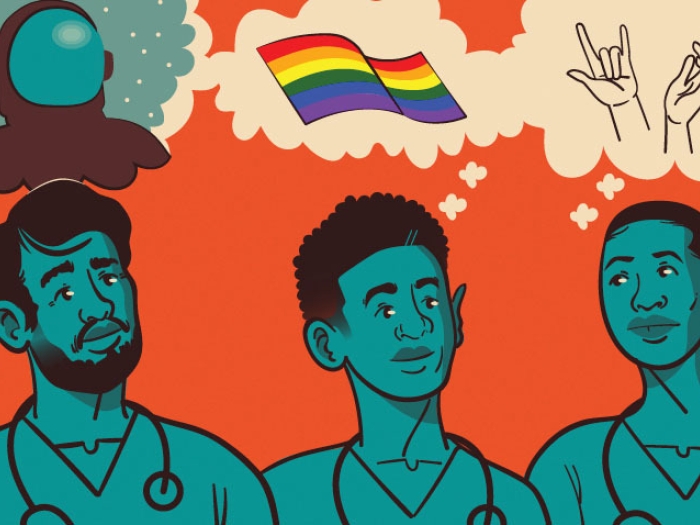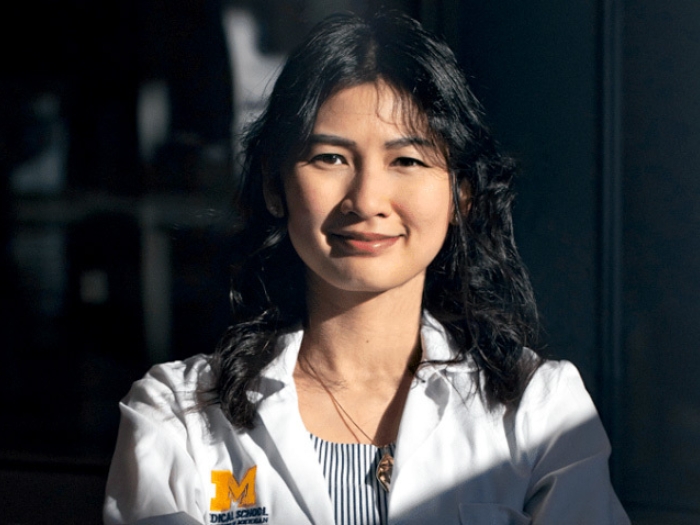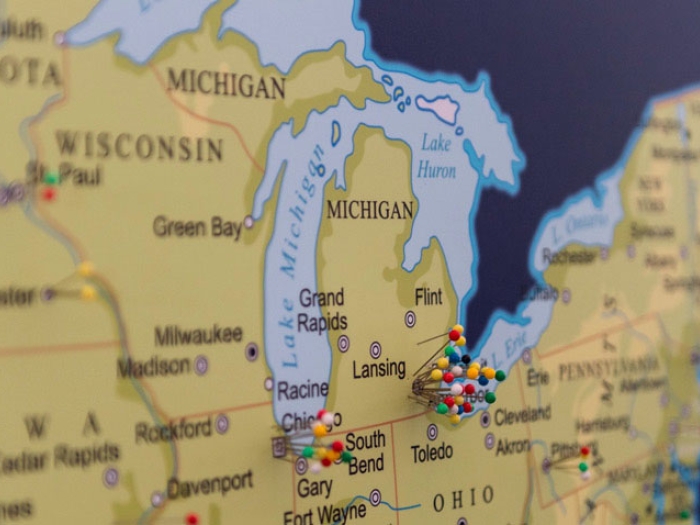Medical student, Victoria Koski-Karell, discusses the evolving relationship between physicians and undocumented immigrant patients.
8:00 AM
Author |

In today's political climate, the evolving relationship between government and health care can potentially place clinicians in positions that challenge both their professional responsibilities and ethical obligations to their patients.
The New England Journal of Medicine (NEJM) recently published its latest article in their inaugural "Case Studies in Social Medicine" series, which uses real clinical cases to translate methods for understanding social processes into health care terms.
LISTEN UP: Add the new Michigan Medicine News Break to your Alexa-enabled device, or subscribe to our daily audio updates on iTunes, Google Play and Stitcher.
Victoria Koski-Karell, a medical student and doctoral candidate in anthropology enrolled in the University of Michigan's Medical Scientist Training Program (MSTP), coauthored the piece with Anita Berlin, M.B., B.S., Ed.D., of Queen Mary University of London, as well as Kathleen R. Page, M.D., and Sarah Polk, M.D., M.H.S., of Johns Hopkins University.
The article profiles two unique case studies which highlight some of the emerging dilemmas health care professionals face while mediating between vulnerable patient populations and the state amidst an increasingly hostile environment towards migrants.
Two Patients at Risk of Deportation
The first case study involves "Ms. Z," a twenty-year-old woman who visits the emergency department of a hospital in London after experiencing several anxiety-related symptoms, including hyperventilation due to severe trauma.
Ms. Z fled to London from Nigeria, where she witnessed the murder of her husband and father. After noting her immigration status as ambiguous, the nurse called the police regarding her visit, and she was later arrested upon discharge.
The second scenario highlights a three-year-old boy named "D," who was born in the United States to two undocumented immigrants. D's mother told the pediatrician that Immigration and Customs Enforcement (ICE) agents had recently come to their house because of their immigration status.
D's pediatrician recognized the ramifications associated with parental deportation, and provided his parents with literature that covered the basic entitlements for undocumented immigrants in the U.S. Yet, another clinician later reported D's pediatrician to their hospital's legal office for distributing these materials to D's family.
In both cases, the physicians thought that they were fulfilling their duties by acting in their patients' best interests. However, their peers believed that their actions threatened the health care system, overall.
Large-scale political shifts can alter clinicians' perceptions of their duties to their patients, society and government. And the threat of deportation has very real direct and indirect consequences for patients' well-being, as well as their abilities to access needed care.
By recognizing and mapping the roles that clinicians play when they mediate between patients and various state entities, physicians can take steps to protect their patients and their own professionalism and values.
Here, Koski-Karell talks about this series and her involvement in this piece.
What is the "Case Studies in Social Medicine" series?
The series was launched in November of 2018 and was the first of its kind in any major medical journal. The cases teach social science concepts to clinicians and touch upon issues like health inequities and social disparities.
Factors such as income, race and immigration status are often driven by social, political and economic forces. And although most clinicians and trainees acknowledge the influence of social determinants on their patients' health, many often lack the tools for incorporating this awareness into their reasoning and care.
However, understanding the social context of a patient or population can drastically change how doctors see patients, and it can help them develop concrete steps, which public health and global health clinicians can take to manage these issues.
I was also drawn to collaborate on this article on a personal level. As a Mexican-American person, future physician and daughter of an immigrant mother, I share a deep concern for the health of migrant patients and their access to care.Victoria Koski-Karell
How did you get involved with this series?
As a medical student and doctoral candidate in anthropology at U-M, I have the privilege of working with Scott Stonington, M.D., Ph.D., and he invited me to serve as an assistant to the case series editorial board. I helped select cases from more than 100 abstracts and later helped organize a conference at Johns Hopkins University where authors and editors workshopped articles before submitting them to the journal.
I was also drawn to collaborate on this article on a personal level. As a Mexican-American person, future physician and daughter of an immigrant mother, I share a deep concern for the health of migrant patients and their access to care. I believe that an agreed upon social good, such as health care, should exist for all.
What role did you play in this article?
While assisting the editorial team we encountered a dilemma: how do we decide between two strong cases dealing with the issue of migrant deportation and health, but in seemingly different ways – one in the U.S., one in the U.K.
The editors recognized an important theme and social concept tying the two together, despite their different contexts and narratives. I was then tasked with fleshing out the story, thick in the second year of my anthropology doctoral program.
This inspired me to turn to some of the discipline's foundational texts, and I found myself poring over Pierre Bourdieu's The Weight of the World: Social Suffering in Contemporary Society. Bourdieu describes the "left" and "right" hands of the state, as well as the roles they play in society, a concept illustrated by our chosen case studies.
MORE FROM MICHIGAN: Sign up for our weekly newsletter
We hoped to shed light on not only the structural forces impacting the health of vulnerable patients like migrants, but also the pressing ethical dilemmas in the clinical setting driven by geopolitical phenomena and state policies.
How does this article relate to your own research endeavors?
I have been traveling to and learning about Haiti since 2008. As an undergraduate at Harvard, I wrote my senior honors thesis on the cultural, political, economic and historical implications of the cholera epidemic in Haiti.
My dissertation research, based in the urban and rural areas of Saint-Marc, Haiti, explores how the presence of cholera is affecting its residents' relationship to and relationship through water, such as the burgeoning private water sector.
The left and right hands of the state look and function very differently in Haiti when compared to places like the U.S. and U.K. However, my doctoral work is still connected to the health of undocumented migrants in many ways.
When considering the health of vulnerable populations anywhere, we need to understand the scope of social factors and forces impacting access to care. I work on determining how large-scale phenomena like state policy, structural racism, globalization and climate change affects individuals and their communities.
In this way, I'm able to see that the upstream forces limiting or policing migrants' access to care are in fact linked to those that led to Haiti's cholera epidemic in 2010, or to the complicated dynamics of the country's now proliferating water industry.

Explore a variety of health care news & stories by visiting the Health Lab home page for more articles.

Department of Communication at Michigan Medicine
Want top health & research news weekly? Sign up for Health Lab’s newsletters today!





